
The joy of first graders at Minh Dao Primary School, District 5, Ho Chi Minh City on the opening day of the new school year 2023-2024 - Photo: NHU HUNG
Speaking to Tuoi Tre, Mr. Thai Van Tai said: "The difference in the way primary school students are evaluated compared to before is the adjustment in the direction of reducing scores, increasing comments, and focusing on process evaluation to closely monitor, support, and encourage students to progress compared to themselves."
Mr. THAI VAN TAI
Need to change the mindset of major and minor subjects
* From the story of the letter "H" being the reason why many students are not excellent, many people think that the way to evaluate students should be by giving points, instead of just comments because it is easy to fall into sentimentality. What do you think about this opinion?
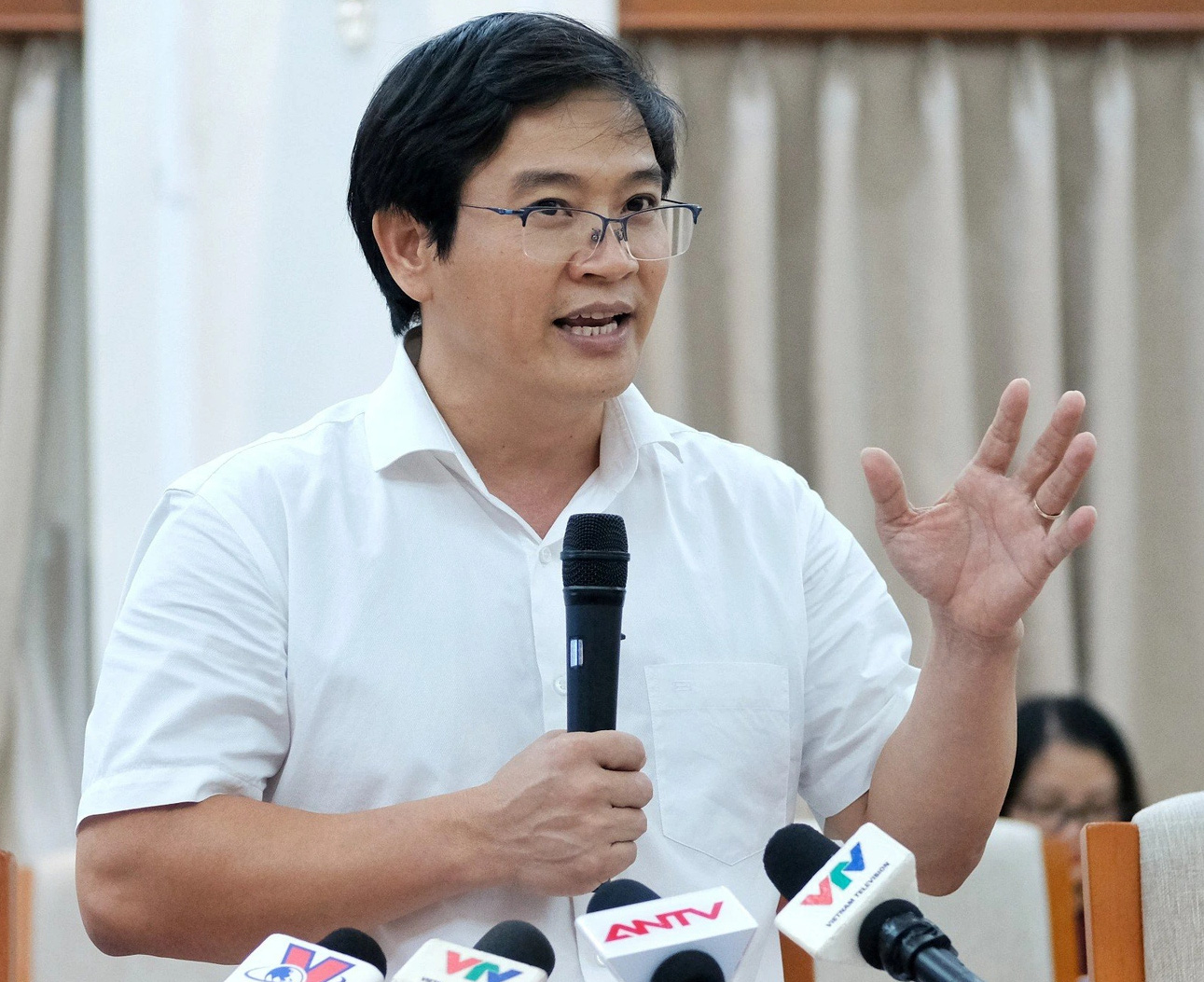
Head of Department of Primary Education (Ministry of Education and Training) THAI VAN TAI
- The viewpoint of the Ministry of Education and Training expressed in Circular 27 is not to evaluate primary school students based solely on scores in periodic assessment tests. Many people like to see scores and think that is the only way to clearly distinguish. However, evaluating a child will not be accurate if based solely on a test at a certain time. Teachers have many ways to evaluate students and will be the ones who understand the student's ability and progress best. The process assessment is also recorded by teachers in the student's profile. This is not only to summarize and determine the student's title at the end of the year but also to serve as a basis for handover between teachers of different classes in continuing to support and closely monitor students in the upper classes.
* How do you feel when the frustration of some parents lies in the fact that students achieve high results in subjects such as math, Vietnamese, foreign languages, while the subjects marked with an "H" are often music and physical education, causing students to lose their excellent titles?
- The requirement of the 2018 general education program is to assess students' abilities and qualities based on designed subjects and activities. A capacity may be mainly demonstrated in one subject but is still related to other subjects. Therefore, the thinking about main and secondary subjects needs to change.
* If there are no majors or minors, why do some subjects have grades in periodic tests, while others only have comments?
- The assessment innovation for primary school students is built in the direction of reducing scoring and increasing process comments. Therefore, there will be subjects with periodic scoring tests and subjects with only comments. In grade 1, only Vietnamese and math have periodic scoring tests, in higher grades there will be some other subjects. Subjects with scores are instrumental subjects for students to use in later classes, subjects with high scientific content. Subjects with only comments are special subjects, with the purpose of helping students experience knowledge. But not because they are not scored, they are secondary subjects.
The pressure from the title is due to adults
* The Ministry of Education and Training innovates the way students are evaluated with the hope of reducing pressure on students, but in reality there are "blind spots" in subjects that do not give scores. This unintentionally increases pressure on children. What do you think about this situation?
- Evaluation and reward should be done for the child. If we choose this approach, we will see how the regulations can reduce the most pressure and stress for children, helping them to be happy, confident, and excited when encouraged. In particular, if we think about children, the way of evaluation and praise must also be done so as not to ignore special cases. For example, a disabled student who still completes the learning requirements and has a good attitude should be encouraged and rewarded. Or a student who encounters a certain incident but still overcomes it to complete his/her studies well, a student who is slow to learn but makes outstanding efforts to achieve results better than themselves...
And praising and encouraging students is not limited to the end of the semester or year. During the teaching process, teachers, in conjunction with the parents' association, can also proactively implement forms of praise and encouragement. In fact, in addition to teacher evaluations, many schools also allow students to vote to honor students with good academic performance, activities, and progress. Schools not only give certificates of merit to excellent students, but can also give certificates of merit to students who are outstanding in a subject, a certain activity, or who have made progress, overcome difficulties, etc.
* The Ministry of Education and Training has regulations, but currently many agencies and organizations still only give praise to those who have certificates of merit for excellent and good titles. Not to mention that their children's titles are something that many parents post on social networks... What do you think about this discrepancy?
- Regarding this, I also hope that agencies, organizations, and associations for the promotion of learning... when rewarding students who are children of officials and employees will also study the regulations of the Ministry of Education and Training to have appropriate regulations, consistent with the current spirit of evaluation and reward. The way to praise should be to make children happy and encouraged, not to praise so that parents are upset and continue to put pressure on the child. This is also what the Ministry of Education and Training hopes that society and parents will understand and accompany.
Innovation in student assessment
According to Mr. Thai Van Tai, in 2020, the Ministry of Education and Training issued Circular 27/2020/TT-BGDDT regulating the assessment of primary school students in the spirit of reducing unnecessary pressure, being encouraging and humane. This is also consistent with the goal of the 2018 general education program, which is to develop students' abilities and qualities through the requirements of subjects and educational activities designed for each class in the level.
* With special subjects such as fine arts, music, physical education... only gifted students can do well. Is the regulation that "good completion" is considered an excellent student too demanding for ordinary students?
- In the 2018 general education program, specific subjects are not to train students to follow the previous model or to train gifted students, but to help students gain knowledge and artistic appreciation to foster healthy emotions for them. For example, in elementary school music, a student with a good singing voice is not necessarily a good performer because the subject requires students to have basic knowledge, aiming to form emotions and the ability to perceive music. The requirements for each subject and class have been considered to be suitable for the psychology of the age group and suitable for general students, not a subject only for gifted students.
Don't "force" students
In my opinion, we need to change the student assessment in the direction that students will excel in one aspect and be encouraged in other aspects. For students who are excellent in all aspects, we need to evaluate three strong subjects and the other subjects can be at a fair level or higher, which will be true to reality. For example, in music, painting, and physical education, students can get an H or higher, but in Vietnamese, math, and English, students with a score of 9 or higher can be classified as excellent. In reality, when entering the world, no one is 100% excellent and careers also depend on each person's inclination, so we cannot use all aspects of assessment to "force" students like that.
Ms. Pham Thanh Phuong (Binh Thanh District, Ho Chi Minh City)
Just rate it as satisfactory.
I think that the assessment of T in all subjects and some qualitative subjects must be from 9 and above to give students the title of excellent is not appropriate in the assessment of primary school students. In my opinion, for subjects that are not qualitatively assessed, students only need to be assessed as passing, not as completing or completing well. For those students who have musical and artistic abilities, they will be encouraged to pursue them in other ways. It should not be included in the general assessment mechanically, using that as a criterion to classify students as excellent.
Ms. Tran Thi Thu Thuy (former teacher at Vo Truong Toan Primary School, District 10, Ho Chi Minh City)
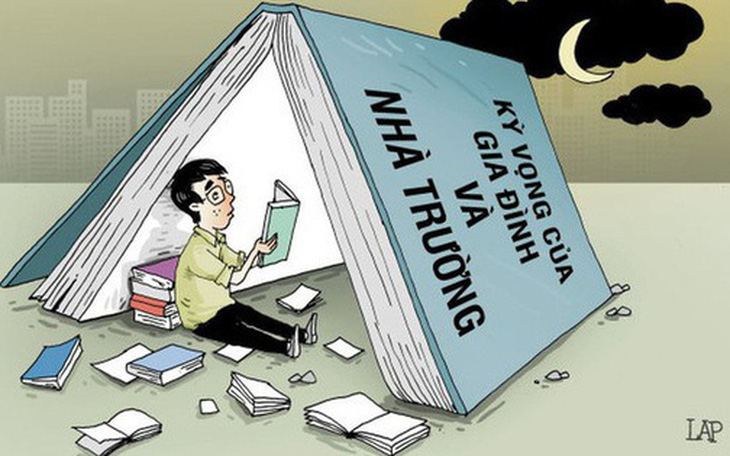 The Poor H
The Poor HSource: https://tuoitre.vn/khen-phai-vi-hoc-sinh-khong-vi-nguoi-lon-20240528233146243.htm



![[Photo] Unique folk games at Chuong Village Festival](https://vstatic.vietnam.vn/vietnam/resource/IMAGE/2025/4/10/cff805a06fdd443b9474c017f98075a4)

![[Photo] Phuc Tho mulberry season – Sweet fruit from green agriculture](https://vstatic.vietnam.vn/vietnam/resource/IMAGE/2025/4/10/1710a51d63c84a5a92de1b9b4caaf3e5)
![[Photo] Prime Minister Pham Minh Chinh chairs meeting to discuss tax solutions for Vietnam's import and export goods](https://vstatic.vietnam.vn/vietnam/resource/IMAGE/2025/4/10/19b9ed81ca2940b79fb8a0b9ccef539a)




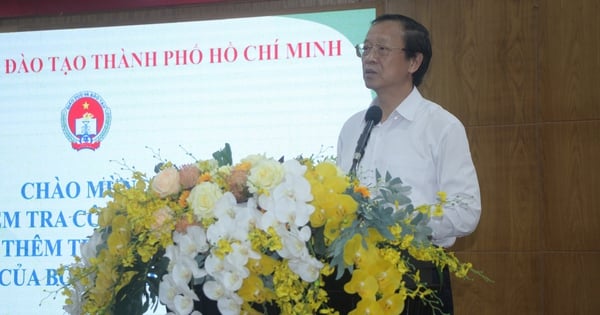




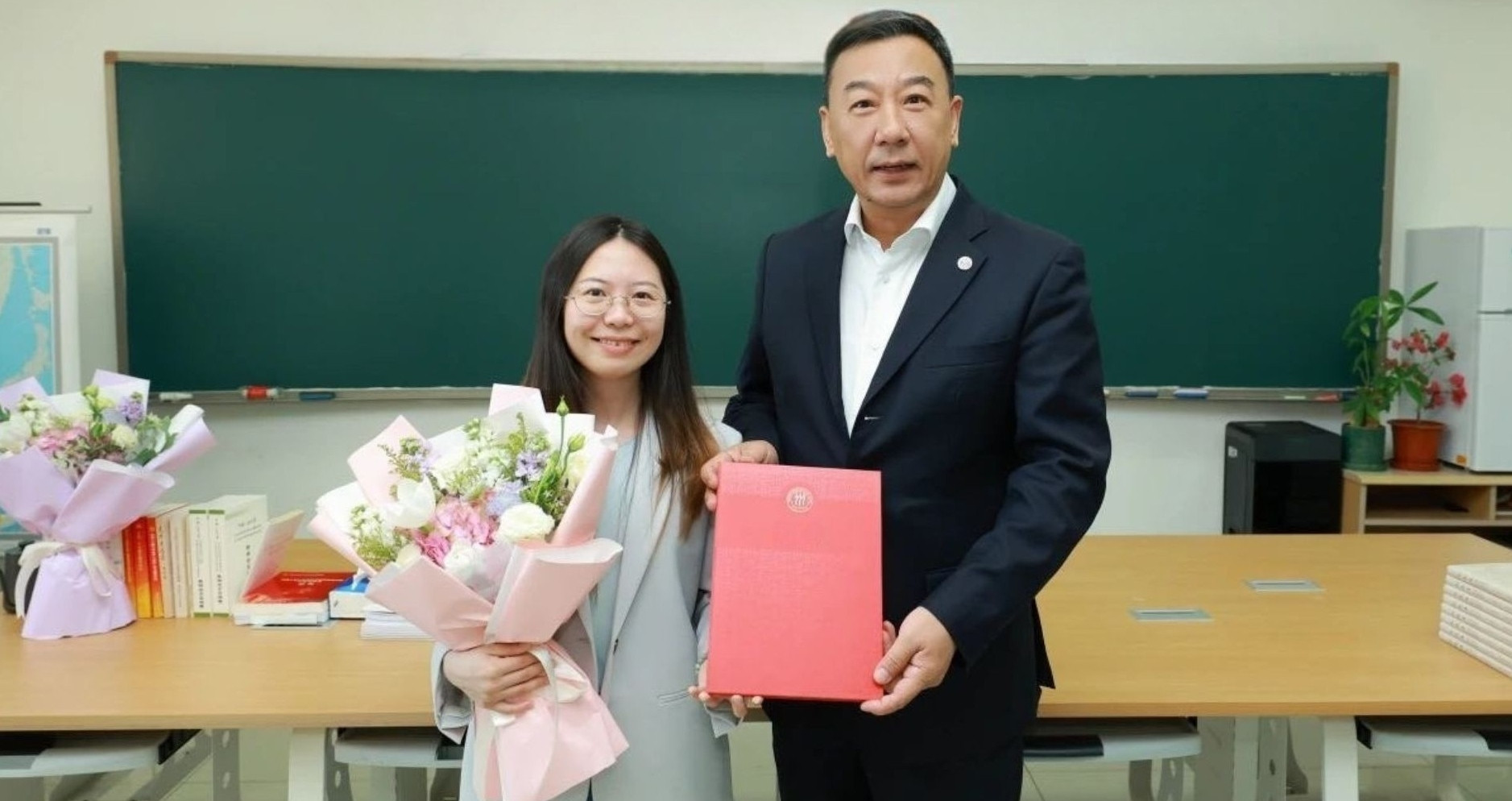

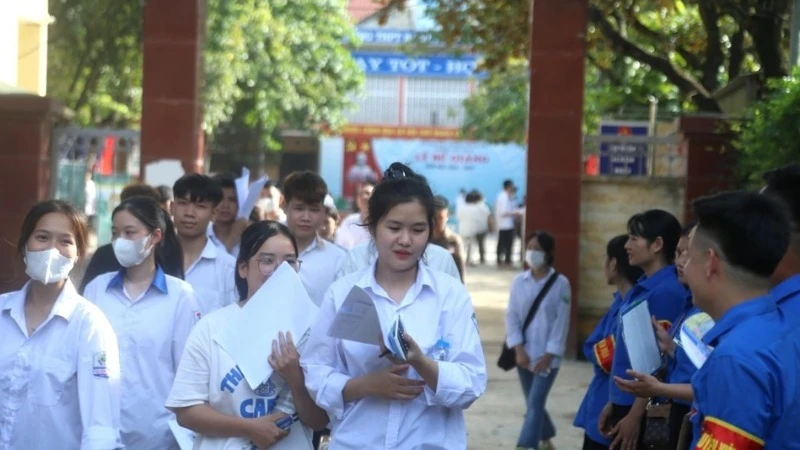
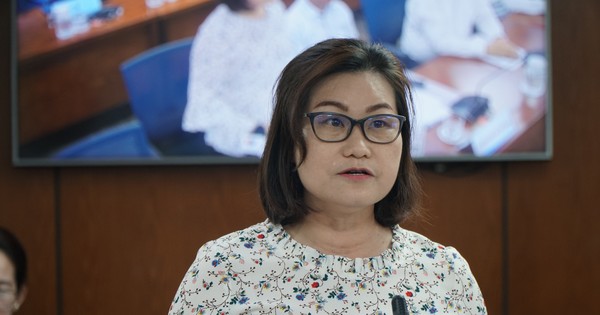







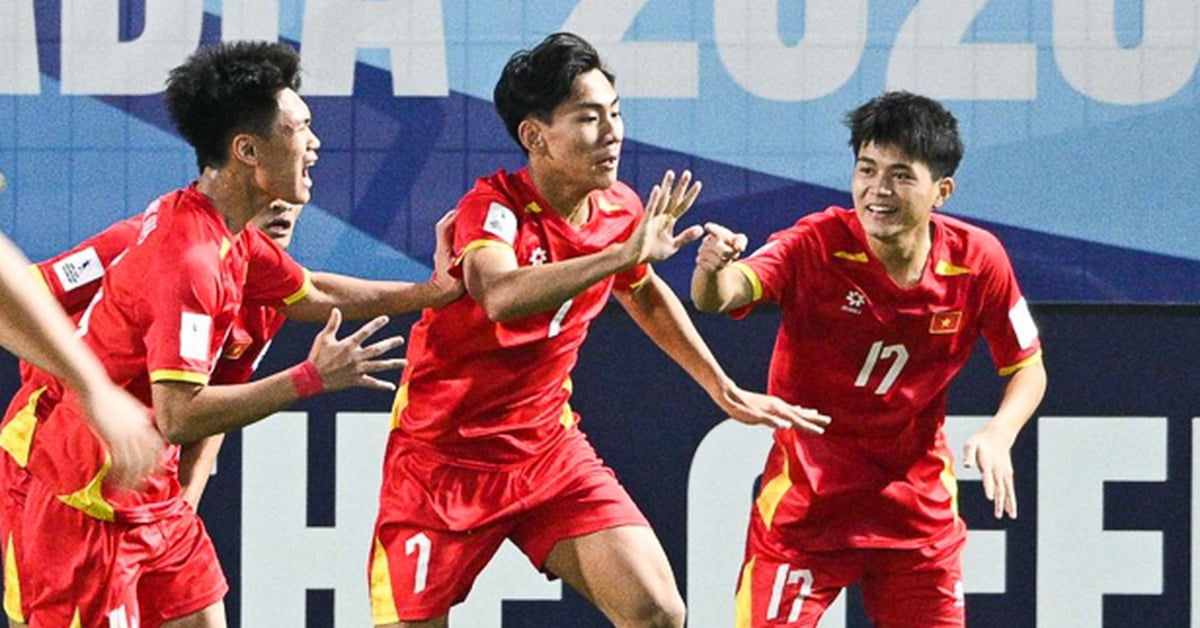

























































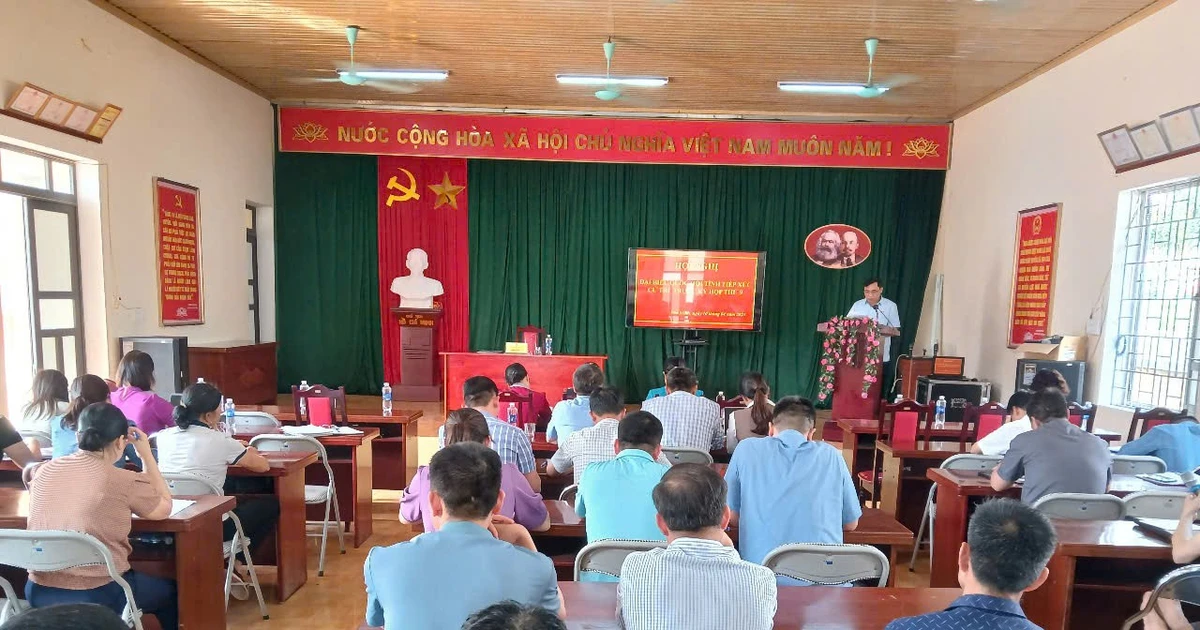









Comment (0)